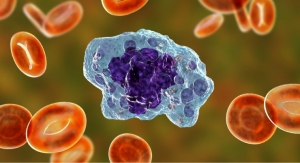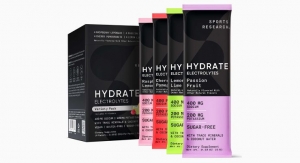06.14.21
A 14-week study on supplementation with betaine, a micronutrient studied for its role in heart, liver, and kidney health, concluded that it could have benefits to exercise recovery and the prevention of non-functional overreaching in athletes. The study appeared in the Journal of the International Society of Sports Nutrition.
Non-functional overreaching, essentially, is when exercise or sports performance reduces due to the effect high-intensity exercise has on central nervous system recovery – high intensity exercise can change immune functioning, and reduce both endurance and pain tolerance in exercise settings until exercise is reduced in intensity or stopped entirely. Reducing non-functional overreach could help prevent injury during exercise, as well as reduced incidences of illness due to cumulative fatigue during the season.
In order to evaluate the effects of betaine on non-functional overreach, researchers administered betaine or a placebo daily over the course of 14 weeks to 29 youth soccer players who, according to the researchers, run an average of 6 to 8 km per game, with sprints occurring approximately ever 90 seconds. The average heart rate during a professional youth game has been reported to be between 82 and 87% HRmax, and lactate levels are estimated to be elevated to a range between 3 and 8 mmol/L.
During the study, the authors evaluated possible markers of non-functional overreaching syndrome, which include changes in growth hormone, cortisol, and the testosterone/cortisol ratio, as well as changes to markers of the immune system such as interleukins.
The authors observed significant changes in the immune markers TNF-a, Interleukin 1B, and Interleukin 6, in that betaine appeared to prevent increases in these pro-inflammatory cytokines compared to the placebo group. Supplementation also appeared to prevent a spike in white blood cell counts, the authors said. For these reasons, they concluded that betaine supplementation could regulate the immune responses of soccer players, and perhaps other athletes, during fatiguing competition seasons.
Non-functional overreaching, essentially, is when exercise or sports performance reduces due to the effect high-intensity exercise has on central nervous system recovery – high intensity exercise can change immune functioning, and reduce both endurance and pain tolerance in exercise settings until exercise is reduced in intensity or stopped entirely. Reducing non-functional overreach could help prevent injury during exercise, as well as reduced incidences of illness due to cumulative fatigue during the season.
In order to evaluate the effects of betaine on non-functional overreach, researchers administered betaine or a placebo daily over the course of 14 weeks to 29 youth soccer players who, according to the researchers, run an average of 6 to 8 km per game, with sprints occurring approximately ever 90 seconds. The average heart rate during a professional youth game has been reported to be between 82 and 87% HRmax, and lactate levels are estimated to be elevated to a range between 3 and 8 mmol/L.
During the study, the authors evaluated possible markers of non-functional overreaching syndrome, which include changes in growth hormone, cortisol, and the testosterone/cortisol ratio, as well as changes to markers of the immune system such as interleukins.
The authors observed significant changes in the immune markers TNF-a, Interleukin 1B, and Interleukin 6, in that betaine appeared to prevent increases in these pro-inflammatory cytokines compared to the placebo group. Supplementation also appeared to prevent a spike in white blood cell counts, the authors said. For these reasons, they concluded that betaine supplementation could regulate the immune responses of soccer players, and perhaps other athletes, during fatiguing competition seasons.




























